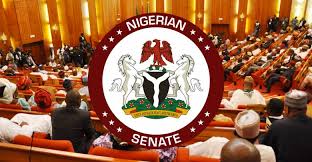Lagos, Nigeria — The implementation of Nigeria’s 2023 budget, amounting to N21.8 trillion, is hanging in the balance as the nation grapples with a substantial shortfall in crude oil production. In August 2023, the country experienced a significant drop of 470,000 barrels per day (bpd), representing a 29% decline from the budget benchmark of 1.69 million bpd.
Economic Impact: Nigeria’s Daily Loss of $43.2 Million Due to Crude Oil Shortfall
At the prevailing global market price of $92 per barrel, this 470,000 bpd shortfall translates into a staggering daily loss of $43.2 million or N32 billion at the Central Bank of Nigeria‘s exchange rate of N742.10 per US dollar.
Initially, the budget had been based on an assumed crude oil production of 1.69 million bpd, priced at $75 per barrel, with an exchange rate of N437.57 per US dollar. This projection had expected to generate N2.29 trillion from the oil sector in 2023.
However, the latest report from the Organisation of Petroleum Exporting Countries (OPEC) in their September Monthly Oil Market Report (MOMR) reveals that Nigeria’s actual crude oil production, excluding condensate, was only 1.2 million bpd, with an output of 233,531 bpd. This means that the nation failed to meet its production quota of 1.8 million bpd during the period.
Crude Oil Theft: The Culprits Behind Nigeria’s Budget and OPEC Quota Shortfall
The primary cause of this production deficit has been attributed to crude oil theft, which has significantly hindered the country’s ability to meet both the budget benchmark and the OPEC quota. The Nigerian Upstream Petroleum Regulatory Commission (NUPRC) also reported that the nation’s condensate output during the period was at 233,531 bpd, including both blended and unblended varieties, further highlighting the failure to reach set targets.

Mazi Colman Obasi, the National President of the Oil and Gas Service Providers Association of Nigeria, commented on the situation, stating, “The current high crude oil prices, currently standing at $92 per barrel, could have reduced the negative impact of low output on the nation. But the nation is currently subsidizing fuel imports directly or indirectly as the prices of refined petroleum products have risen significantly in the global market.”
Crude Oil Theft Highlights Ongoing Challenges
Additionally, Osagie Osunbor, the Country Chair of Shell Companies in Nigeria, confirmed the severity of oil theft in the company’s briefing, saying, “We faced our biggest operational challenge in many years at SPDC, where a significant decline in crude receipts at the Bonny Oil and Gas Terminal resulted in our declaration of force majeure in March 2022. Unfortunately, along with other operators in Nigeria, SPDC continues to face the twin challenges of sabotage and crude oil theft, each of which not only deprives our country and our people of billions of dollars of tax revenue but also endangers people’s lives.
Table of Contents
Discover more from OGM News NG
Subscribe to get the latest posts sent to your email.














